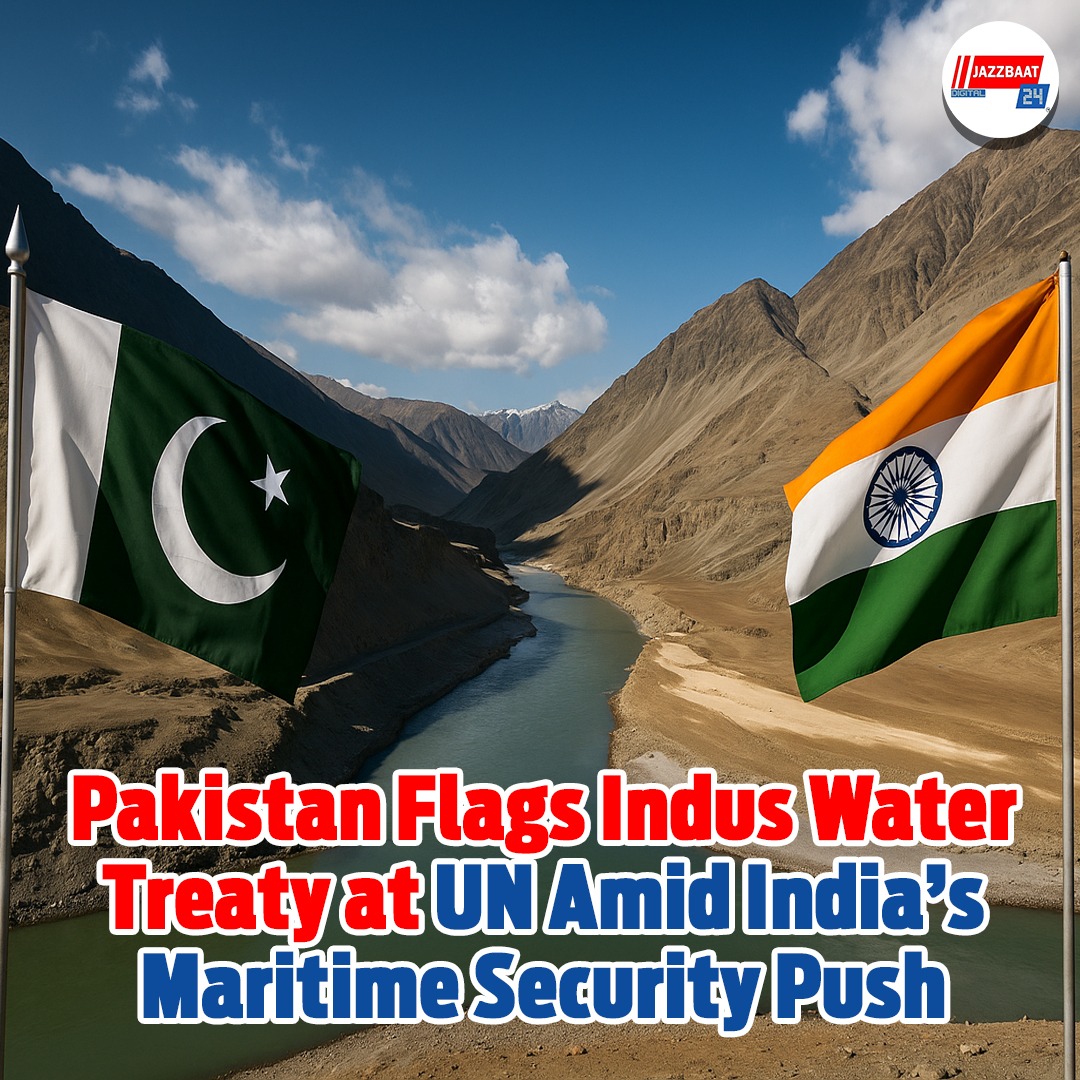
Pratiksha Ghosh
Washington, May 21, 2025: Pakistan brought up the Indus Waters Treaty during a high-level UN Security Council debate on maritime security, indirectly criticising India for suspending parts of the treaty amid the recent terrorist attack in Pahalgam. The attack, which New Delhi has linked to groups based in Pakistan, has further strained ties between both nations .
Addressing the Council, Pakistan’s Permanent Representative to the UN, Asim Iftikhar Ahmad, denounced what he called a pattern of “aggressive naval expansion” in the region.
Without naming India directly, Ahmad claimed one country was pursuing regional dominance by sidelining neighbors from key maritime organizations such as the Indian Ocean Rim Association (IORA), of which Pakistan is not a member.
“This dangerous naval buildup is matched by coercive diplomacy and the systematic exclusion of regional stakeholders,” Ahmad said. “It threatens maritime stability and undermines inclusive regional cooperation.”
Ahmad also accused India of exploiting shared water resources, pointing to New Delhi’s decision to halt certain aspects of the Indus Waters Treaty, which has governed water sharing between the two countries since 1960. He alleged this was part of a larger strategy to weaponize geography and disrupt collaborative frameworks, particularly harming Pakistan as a lower riparian state.
India’s suspension of elements of the treaty is seen as a stern diplomatic message in response to repeated cross-border attacks, which Indian officials say originate from Pakistani soil.
In the same session, India’s Permanent Representative to the UN, Parvathaneni Harish, highlighted that maritime security and counterterrorism are the crucial components of India’s national strategy amid shifting dynamics in the Indo-Pacific region.
Harish reaffirmed India’s dedication to a free and rules-based maritime order, aligning with the United Nations Convention on the Law of the Sea (UNCLOS). He also outlined India’s multipronged approach, combining military readiness, diplomatic engagement, and regional partnerships to bolster maritime security.
“India is focused on enhancing capacity building, upgrading defense capabilities, and fostering cooperative mechanisms to deal with modern security challenges,”
Harish said, highlighting New Delhi’s expanding role in safeguarding regional maritime stability.
The exchange at the UN highlights the growing tensions between India and Pakistan, with maritime and riverine disputes emerging as new flashpoints amid an already volatile relationship.